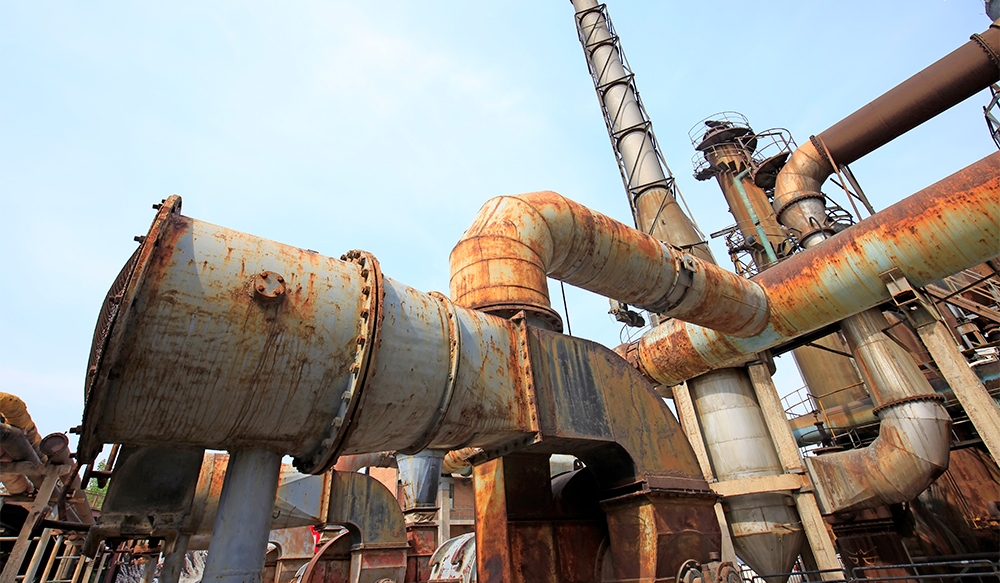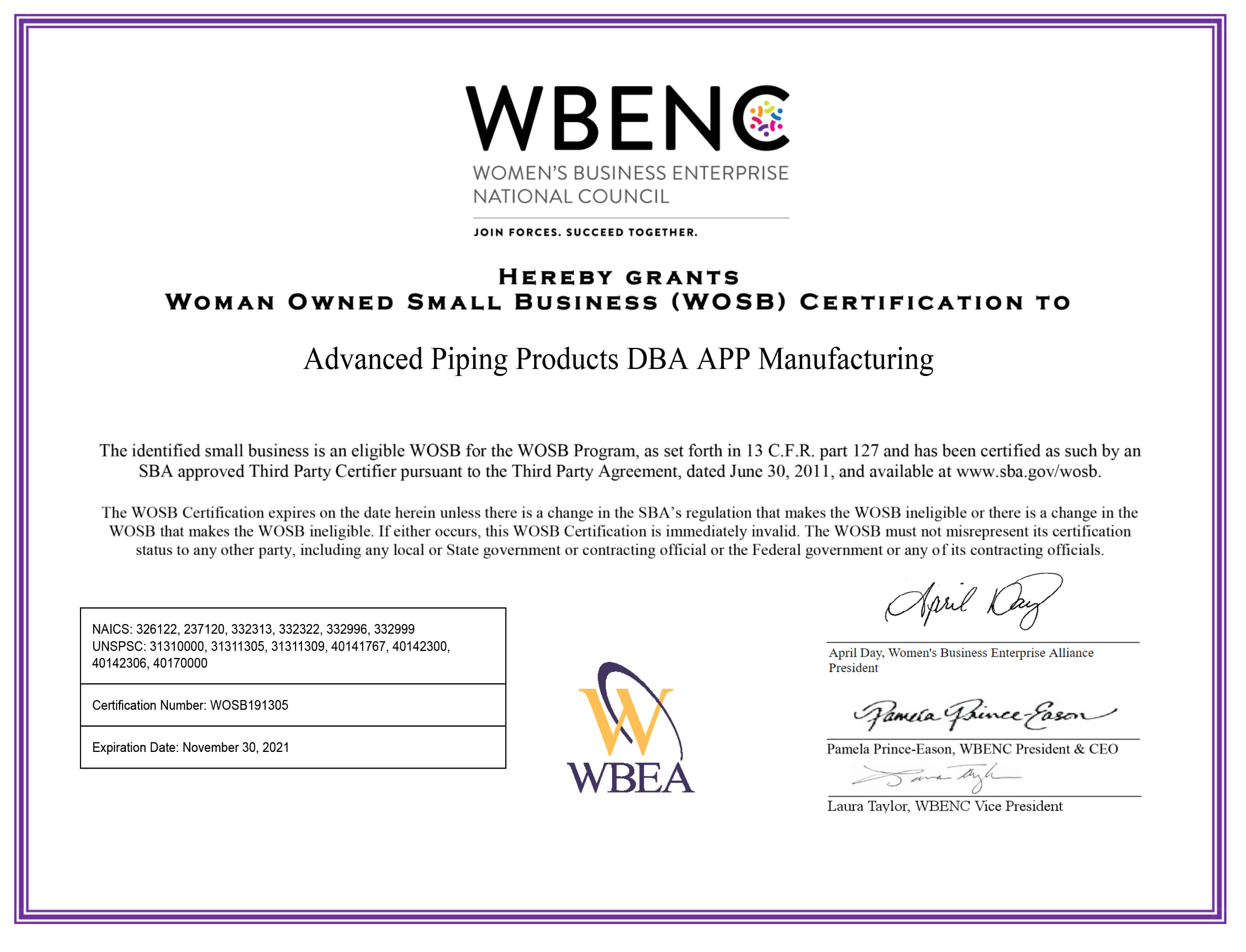
Have a nagging suspicion about corrosion? It’s best to act now. Ignoring pipe corrosion now could mean burst pipes, major spills, or costly breakdowns in the near future.
If you want to stop corrosion before it starts, it’s time to face your fears. Here are four questions about pipe corrosion you may be too afraid to ask and how to meet them head-on.
1) Are Our Outdated Parts Causing Pipe Corrosion?
When parts start wearing down, they’re more susceptible to corrosion, breaks, and shutdowns. The sooner you can identify underperforming parts, the easier it will be to keep your system running smoothly. Fortunately, there are signs to look out for:
- Noise: Excess noise could be a sign that supports are wearing out. If you hear rattling or scraping, it may be time to upgrade your parts.
- Visible corrosion: Notice rust or discolored metal? It might be a sign that finishes have worn down. Once the process starts, it can get out of control fast.
- Leaks: Especially at joints, moisture can pool—leading to corrosion and leaks. It’s best to hone in on these weak spots before leaks turn into full-on pipe bursts. Not sure how to identify leaks? Start by relying on your senses. Look for moisture pools, be alert to the smell of gas, and listen for drips.
2) Is Corrosion Causing a Blockage?
Because your piping system is pumping gallons of liquid through pipes at rapid rates, any holdup can cause pressure to mount. Even a small blockage can wreck whole sections of piping. Too often, the debris from interior corrosion will pile up and clog pipes. That’s why it’s important to pay attention to signs early on:
- Energy loss: Keep an eye on how much energy your system is using. If your pumps or reciprocating compressors are working especially hard, it may be a sign that pipes aren’t flowing the way they should.
- Low pressure: If your system experiences a sudden drop in pressure, it may mean there’s a blockage.
- Sagging pipes: When pipes sag, they’re susceptible to pooling that leads to crevice corrosion. Droopy pipes could indicate that pipe runs are filling up with extra weight. Even if they aren’t already blocked, these danger zones should be fixed to avoid corrosion in the future.
3) Are My Pipe Supports Stopping Corrosion?
“Corrosion” is a dirty word in the piping industry. It’s natural to want to turn a blind eye to those pipe supports you think may be underperforming. However, taking a critical look at supports now can keep your system running smoothly in the future. Here’s how your pipe supports should stop corrosion:
- Reduce metal-on-metal contact: When metal scrapes on other metal, surfaces are exposed to corrosive materials. Additionally, pairing dissimilar metals can cause galvanic corrosion, which is a damaging electrochemical reaction. Pipe supports should stop the metal of pipes from directly rubbing against surrounding metals at all times.
- Control heat: When the heat from inside pipes escapes, it causes pipes to move and wear down. Your pipe supports should discourage heat transfer and reduce thermal expansion.
- Control movement: With so much power running through pipes, unrestrained pipes can jiggle, rupture, and slide across hard surfaces. Every instance of friction can weaken pipes and gives corrosive materials a chance to creep in.
4) Are My Pipes Exposed to a Highly Corrosive Environment?
Chances are, your pipes are being pummeled by the elements around them. And some environments are especially harsh. However, if you identify your environment’s unique threats, you’ll be prepared to fight back. Here are some climates that require extra care:
Marine Industries
Piping systems that operate in marine environments are exposed to salty air and seawater. Unfortunately, saline can kick-start corrosion. In fact, according to Sciencing, saltwater can corrode metal five times faster than its freshwater counterpart. You can protect pipes in salt-heavy environments by galvanizing surfaces, water-proofing pipes, and using non-corrosive pipe supports.
Dirty Jobs
According to the American Galvanizers Association, aggressive soil can accelerate a metal’s corrosion rate by 10 times. To stop corrosion hitting pipes, consider lifting them off of corrosive dirt and bacteria with pipe elevators, such as pipe shoes.
Cold Systems
There are some industries whose pipes drop down to frigid temperatures, and those pipes are in danger of extra wear and corrosion. Without proper insulation, metals can swap heat, leading to ice formation and damage. You can stop the destruction that comes from thermal expansion with pre-insulated pipe shoes or composite supports.
Hot Systems
In industries that use solar panels or that are exposed to constant sunlight, pipes can heat to extreme temperatures. As the sun wears down outer protective metals and thermal expansion causes movement, the outer surface of pipes and supports open up to corrosive elements. If your piping system is exposed to constant sunlight, consider using pipe supports, such as ProTek Wear Pads and ProTek Pipe Shoes, to stop abrasions from thermal expansion.
Let Us Help Solve Your Corrosion Problems
If you’re worried about pipe corrosion, you don’t have to go it alone. Contact our experts, and we’ll help you keep your piping system corrosion-free.






